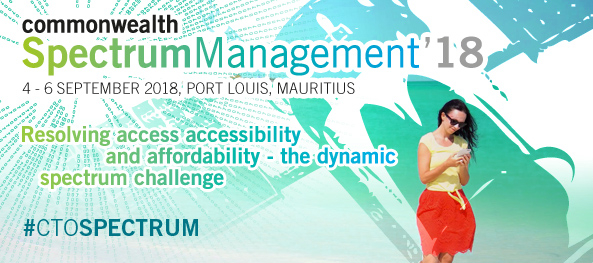Though June 17, 2017, the third deadline agreed by the federal government for the nationwide transition from analogue to digital TV transmission has come and gone, it means that digital dividend expected to quicken broadband delivery after Digital Switch Over (DSO) have become elusive.
The digital dividend refers to the radio spectrum which is released in the process of digital television transition. When television broadcasters switch from analogue TV to digital-only platforms, part of the electromagnetic spectrum that has been used for broadcasting will be freed-up because digital television needs fewer spectrums than analog television. One reason is that new digital video compression technology can transmit numerous digital sub channels using the same amount of spectrum used to transmit one analogue TV channel.
However, the primary reason is that digital transmissions require much less of a guard band on either side, since they are not nearly as prone to RF interference from adjacent channels. Because of this, there is no longer any need to leave empty channels to protect stations from each other, in turn allowing stations to be repacked into fewer channels, leaving more contiguous spectrum to be allocated for other wireless services.
Whereas industry analysts averred that why Nigeria lost the third deadline after 2012 and 2015 is simply paucity of funding for the scheme at the National Broadcasting Commission (NBC), they were worried on why after the agency had sold a freed frequency to MTN Nigeria at N34bn during the leadership of the former DG, Mr. Emeka Mba, federal government was only able to squeeze out N10bn to the new DG, Mallam Is’haq Modibbo Kawu.
But as a way of survival, current leadership of NBC has decided to segment the switchover in batches of six states at ago than one hand nationwide.
In his media briefing in Lagos recently, Modibbo Kawu said the commission hoped to have switched over at least 12 states by December 2017 beginning with the first six from next month.
Investigations by Business Hilights revealed that the digital dividend usually locates at frequency bands from 174 to 230 MHz (VHF) and from 470 to 862 MHz (UHF). However, the location and size of digital dividend vary among countries due to the factors including geographical position and penetration of satellite/cable services.
As a result of the technological transition, a significant number of governments are now planning for or allocating their digital dividends. For examples, the United States completed its transition on 12 June 2009 and auctioned the spectrum.
In countries where the digital television transition has not yet finished, over-the-air broadcasting services are still using radio-frequency spectrum in what is known as the Very High Frequency (VHF) and Ultra High Frequency (UHF) bands. After the completion of digital transition, part of this spectrum will be released as digital dividend to provide a range of new communication services.
Proposed utilization of the released spectrum includes: Digital Terrestrial TV; Advanced Mobile Services; and Broadcast Mobile TV. Others include Commercial Wireless Broadband services, both to fixed locations and mobile devices, Wireless Broadband services for public safety and disaster relief (PPDR) and Services ancillary to broadcasting and programming (SAB/SAP).
Analog television spectrum in the UHF bands is valuable to potential purchasers because of its ability to carry signals over long distances, penetrate buildings and carry large amounts of data.
Several nations are in favour of using a part of the digital dividend for electronic communications services, such as mobile communications and wireless broadband. These new services would utilize the upper part of the UHF band (790-862 MHz).
Just as NBC sold the released broadcast frequency shortly after its release by the Nigerian Communications Commission (NCC) because its management falls within the purview of NBC, the delay in the release of digital dividend which will stem from complete nationwide DSO remains a source of worry for the NCC who by law will manage it because it is communication frequency and not for broadcast.
Pundits of DSO are upbeat that effective nationwide coverage could facilitate economic development, suggesting that every 10% increase in household broadband penetration will bring 1.4% increase of GDP growth.
Usually GDP growth leads to job creations. One good thing about mobile broadband is that mobile penetration is much higher than PC penetration that means mobile broadband will help to the broadband penetration to increase faster.
Mobile broadband could be used to serve people living in rural area and low income groups, such as farmers. It could provide them medical, educational and other general information.
Some researchers argued that digital dividend could provide opportunity to bridging the digital divide
They argued that because of the characteristics of this spectrum fewer radio stations are needed to cover a given area. Therefore, the cost to provide broadband in remote rural areas could be significantly reduced. In the past, a profitable roll out of fixed line broadband infrastructure is not feasible because the necessary investments to cover the long distances are too high. However, wireless broadband using the spectrum of the digital dividend offers an opportunity to overcome the digital divide.
Further findings show that Nigeria will boost its earnings from the sales of the frequencies as United States during it 2008 wireless spectrum auction ahead of the successful DSO in 2009, concluded with 1090 provisionally winning bids covering 1091 licenses and raised a total of $19,120,378,000 in winning bids and $18,957,582,150 in net winning bids.
Analysts say by the size of Nigeria, the federal government through the NCC could rake in over $20bn from auctioning of the digital dividend, but that can only happen when every state of the federation has transited.
Currently, there are fears that NBC has moved from shifting the goalpost of DSO deadline to pulling off the goalpost entirely as it was silent on a new date for the country.








